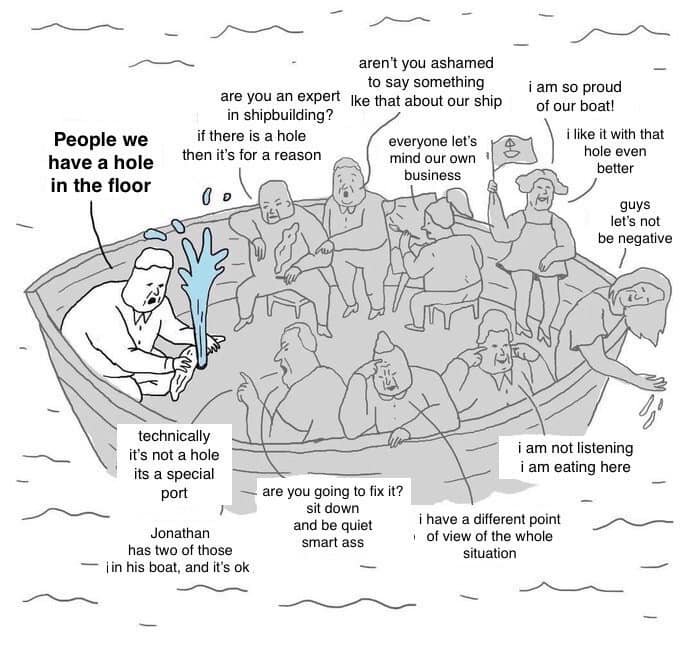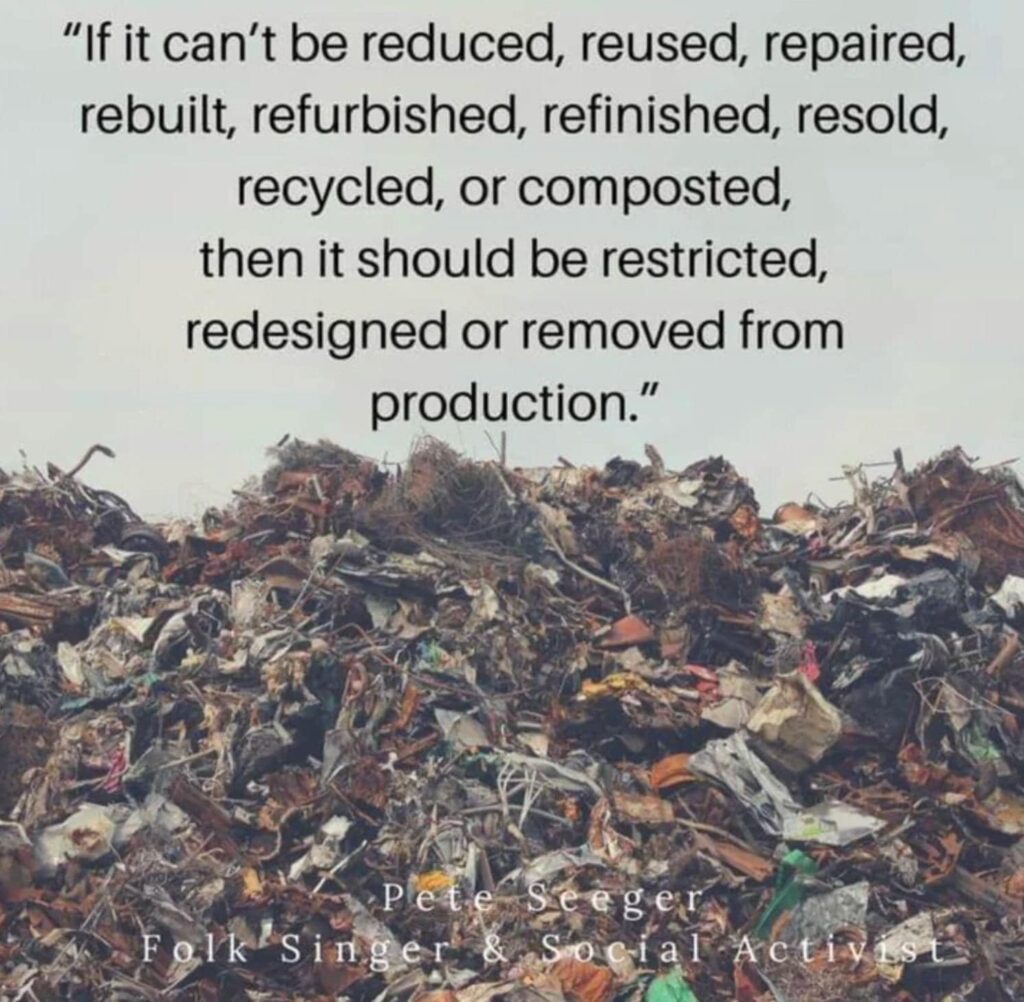Resilience is community and trust, this resilience grows by connecting the actions of today to the possibilities of tomorrow, even when that future is unknowable. It’s rooted in community, and community thrives on mutual trust. Trust isn’t about keeping a ledger; it’s about giving freely without expectation. Money is not the foundation of resilience. Across the world, billions live resilient lives by supporting each other, because if they don’t, they all go under. From our privileged view, we often forget that resilience is nurtured in these commons.
We need to think about this: The idea of dual power isn’t new. It goes back to revolutionary moments when people realized the need to build alternatives to existing oppressive structures rather than only confronting them head-on. In the current political climate, where the failures of state and capitalist control are glaring, we need to revisit and reframe this idea of “dual power”. This isn’t a utopian dream or a naïve belief that we can merely build around the edges while the world burns. It’s about creating practical, grounded alternatives that directly challenge the existing system by living outside of it and dismantling it from the inside.
The current mess, look around. We are surrounded by a mess of our own making. The relentless march of #neoliberalism has commodified every aspect of our lives, and the #dotcons have taken over our social spaces, transforming genuine human interaction into data points for corporate profit and control. The state, meant to serve the people, is a tool of the greedy and nasty, maintaining control through fear, surveillance, and repression. It doesn’t take much to see that the paths we are currently on are leading to #climatechaos, widespread inequality, social and ecological breakdown.
But here’s the problem: most people still think we have choices within this mess. They talk about reforming the system, fixing capitalism, or making dotcons tech more ethical while continuing to operate on the same lost paths. This is delusion, a comfortable delusion for some, but a delusion nonetheless.
On the #DIY path, dual power is about creating parallel paths that coexist with the current ones but serve entirely different functions. Instead of asking for scraps from the masters’ table, we build our own tables, with food that nourishes everyone. It’s about constructing alternative social, economic, and political structures that are directly in opposition to the current hierarchies and power dynamics.
It’s not just about building alternative structures, though. It’s more important for actively delegitimizing and dismantling the existing power structures of capitalism and the state. This involves #directaction, solidarity, and collective organizing to challenge and change state and capitalist control in all its forms. It’s about a two-fold strategy: building the new while composting the old.
Why dual power matters, for too long, the left and radical movements have been stuck in reactionary paths, fighting battles on terrain chosen by the state and capital. We need to change this by recreating a new path, a space where we shape the traditions and myths that shape us. This is not just some theoretical exercise; it’s already happening in many parts of the world.
We see it in the #fediverse, on #mastodon, #bluesky and #noster networks, in grassroots mutual aid networks springing up during the current crises when the state and corporate structures fail. We see it in community run food cooperatives, decentralized digital spaces, and local assemblies where decisions are made collectively, rather than by a few in power. This is not an abstract idea, it’s lived practice, a shift from fighting against the system to creating something new and more humane.
Building dual power in a digital age, the #openweb and federated networks offer a glimpse of what dual power can look like. Unlike the #dotcons that feed on greed and manipulation, the openweb is rooted in principles that serve the community, #4opens, transparency, open collaboration, and autonomy. But even here, we often fall into the trap of merely copying the structures we’re trying to replace, creating the same mess under a different banner. The next step needs to be truly native to the 4opens path, transparent, open, and accountable, rejecting the commodification that the dotcons have normalized.
But digital spaces alone won’t save us. They are tools, important ones, no doubt, but we need a broader focus. We need to create real-world spaces of resistance and creation. Think community gardens that also serve as meeting points for local decision-making. Think of decentralized energy cooperatives that break free from corporate control. Think of neighbourhood assemblies that replace the hollow, bureaucratic local governments that most people have lost faith in. This is dual power in practice.
The roadblocks, the #Geekproblem and #Fasherista paths, let’s not romanticize this process. We need to acknowledge the challenges within our movements, the #geekproblem and the #fashernista paths that unconsciously block the change we need. The geekproblem is the obsession with technical solutions over social and political ones, while the fashernista path focuses on trendy but superficial activism that serves as more of a social club, careerism, than a serious challenge to power. Both paths have their place, but they should not dominate our paths. We need to keep our focus on the bigger picture.
Moving beyond the noise, to those who say, “Now is not the time,” I ask, “When will it be?” The crisis is here. We are all worshiping the #deathcult, masking 40 years of #neoliberal ideology, pretending we have choices that simply don’t exist. Now is precisely the time to dig in, get our hands dirty, and start composting this mess we’ve been dragged into. The work ahead isn’t easy, and there will be mistakes, missteps, and mess-ups along the way. But that’s okay. Composting is messy work, and so is building a more open and sustainable world.
If you’re waiting for someone to tell you what to do, you’ve already missed the point. Dual power isn’t a blueprint; it’s a living practice. It’s a call to start building the new and composting the old, right now, where you are. Lift your head, look at the mess, and start digging. Together, we can build something better than the scraps we’ve been given. Join us on this humanistic adventure in social technology and direct action. The #openweb, the #commons, and the real-world spaces we build are where the future lies. Let’s make it happen #OMN








